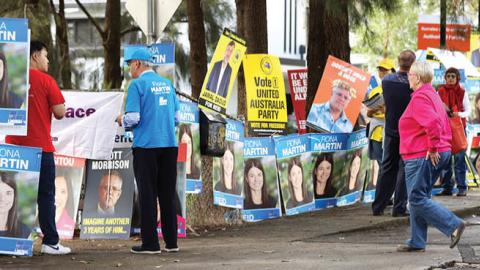The teal independents claim they are a natural fit in the electorates they seek to represent. That is, they are locals with accomplishments of their own and they care about the same issues that concern voters. Most of all, they claim being untethered to a political party means they are free to think for themselves and apply so-called evidence-based decision-making to any problem.
There are troubling questions they will not answer. What is the true relationship between the Simon Holmes a Court-backed Climate 200 entity and the candidates, and who will they support in the event of a hung parliament?
As an act of charity, one will not interrogate the claim they represent their electorates’ values, even though most of these independents are hoping to win on the back of preferences rather than a superior primary vote to the sitting government member.
Instead, let’s take these candidates at face value and assess them as they would like to be viewed: as genuine independents hoping to hold the balance of power and call the shots in parliament as they see fit. On policy grounds, in particular foreign policy, that scenario is likely to lead to a poorer outcome for Australia than if one of the two major parties were able to govern with their own majority in the lower house.
The notion of the enlightened independent candidate without institutional prejudices is largely based on a flawed idea of how good decisions are made in public life. For example, Allegra Spender and Kate Chaney, candidates for Wentworth and Curtin respectively, were successful management consultants. Both argue they will bring an analytical and problem-solving mindset to Canberra as this is what top-shelf consultants are trained to do.
It is true such skills are always required. But in politics, defining the problem is the real battle and it is not only a matter of rational or causal reasoning from one position to another. If it were, we might as well be ruled by a computer spitting out the most efficient solutions to agreed problems. The real world is one of contested values and priorities. That is what it means to live in a genuinely pluralistic society.
The Climate 200-supported candidates live in a far more simplistic moral and political universe because in their own minds they have moved past defining the great problem, which is that we exist in a climate emergency. Confronting this is the highest priority and they need only to deploy their analytical skills to work out what is best for lowering carbon emissions. Which is why one would expect more than a few vague statements about the importance of renewables.
More important, what priorities valued by other Australians are they prepared to sacrifice, and at what cost?
Given their ambition to control the balance of power, they need to be subject to the same scrutiny as the major parties. But there is concerted silence responding to these questions.
There is another problem with independent candidates giving themselves carte blanche to shape policy, especially when applied to foreign affairs.
Monique Ryan, the independent candidate for Kooyong, argues that China should be treated with respect and sensitivity and the government has been weaponising this important relationship for domestic political gain.
To be fair, some of the independents have more credible stances on external policy. Regarding Ryan, she is wilfully or else negligently ignoring Beijing’s record of escalating threats and coercive and intrusive measures against Australia that preceded the open and downward spiral in bilateral diplomatic relations. Of course, Ryan is entitled to her opinion, and it may be that there are individuals within both parties who agree with her. But even if this is so, those latter individuals will face immensely more scrutiny by the media and public.
Moreover, to influence relevant policy, those in the major parties need to justify their views to colleagues. It is not perfect contestability but better than none. And whichever side it is, both must consider the party’s brand and institutional standing in the longer term. Foreign policy involves complex questions regarding the relationship between individuals, communities, nations and other entities such as international organisations. This means forever balancing principle, prudence and pragmatism.
The point is that Coalition and Labor members are collectively obliged to take seriously the unintended consequences of ill-conceived policy and to mitigate disaster as the stain of these will afflict their organisations for years, even decades.
In contrast, the teal independents endure no such burden. They, rather than the major parties, are far more susceptible to short-term thinking or populist sentiment when it comes to making decisions – which is precisely what they accuse the current government of doing.
Independents tend to call for urgent and radical reordering of our domestic and foreign affairs because they seek power without responsibility. They are not in the position, nor will be around, to clean up whatever mess is left. On policy grounds, one might not like what the major parties are offering. But the alternative is likely to be much worse.
Read in The Australian



















